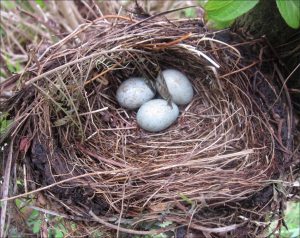Archive for February, 2018
A discovery in the sky
Then felt I like some watcher of the skies
When a new planet swims into his ken
—John Keats
A letter to my parents:
31 March 1970
…This morning we had another memorable experience: Tony got us up at 4:30 am to see Bennett’s comet, which is visible in the east at this time. This is believed to be a new comet, and is an extraordinarily beautiful sight, with its huge tail trailing. Can you see it from New Zealand?

The Southern Cross and its Pointers. Image from Te Ara–Encyclyopedia of New Zealand, https://teara.govt.nz
Since I was a child, learning from my father how to find due south from the Southern Cross and its Pointers, I have been fascinated by the night sky. In my homeland of New Zealand I could point out some of the interesting phenomena: the Coalsack nebula, the Magellanic Clouds. An immigrant to the Northern Hemisphere I was still learning the northern sky.
In 1970 I was too busy with children and their needs to study more about the new comet. I’ve now learned that it is considered one of the greatest comets of the past century. It was discovered on Dec 28 ,1969 by an amateur astronomer, Jack Bennett, in Pretoria, South Africa. It seems we have a southern constellation in common. From his obituary I learned that Bennett, who died in 1990, “became interested in Astronomy when as a teenager, his mother used to point out to him the Southern Cross and the brightest stars and planets, in the evenings after church service, on their way back home.”

Daniel Verschatse took this 1970 photograph of Comet Bennett near the town of Waasmunster in Flanders (Belgium).
The astrophotographer Daniel Verschatse notes on his website:
“For two decades, starting in the late 1960’s, the southern sky was patrolled by a dedicated South African comet-hunter named Jack Bennett. Using a 5-inch low-power refractor from his backyard he discovered two comets. Jack also picked up a 9th magnitude supernova in NGC 5236 (M83), becoming the first person ever to visually discover a supernova since the invention of the telescope.”
I also learned that Comet Bennett is estimated to have a period of 1700 years. So if it previously appeared in Earth’s sky, it would have been in the third century, about the time that the Roman Emperor Constantine the Great was a baby. Britain was still under Roman rule. In my ancestral Ireland, Cormac mac Airt reigned as High King from his seat at Tara.

The Lia Fáil (Stone of Destiny) atop the Hill of Tara, County Meath, where the High Kings of Ireland were traditionally installed.
Comet Bennett’s next perihelion, or point at which it is closest to our sun, is predicted to be the year 3600. Might it still exist by then, and might there be humans left to see it? Who knows?
The nesting instinct
 I’m wondering whether there’s some evolutionary or hormonal factor that drives women (I don’t know about men) to clean every inch of their new home when they move house. The thought came into my head when I reread a letter to my parents written when we were moving from our first apartment in Cupertino, CA to a tract house in the same neighborhood.
I’m wondering whether there’s some evolutionary or hormonal factor that drives women (I don’t know about men) to clean every inch of their new home when they move house. The thought came into my head when I reread a letter to my parents written when we were moving from our first apartment in Cupertino, CA to a tract house in the same neighborhood.
Feb. 2, 1970
… I cleaned the apartment, then of course rushed back here to try to get a bit more cleaning up and unpacking done. The previous owner was a pretty sloppy housekeeper – still, I guess everyone complains about the other woman’s methods. Anyway, most of the house is now more or less presentable …
 Looking for information on the topic, I found lots of material on what is called the “nesting instinct,” the urge most pregnant women have in their third trimester to scrub floors, sort sock drawers, or perform other cleaning and organizing tasks. It appears to be triggered by an increase in the body’s estradiol, the major female sex hormone, and is “an adaptive behaviour stemming from humans’ evolutionary past.”
Looking for information on the topic, I found lots of material on what is called the “nesting instinct,” the urge most pregnant women have in their third trimester to scrub floors, sort sock drawers, or perform other cleaning and organizing tasks. It appears to be triggered by an increase in the body’s estradiol, the major female sex hormone, and is “an adaptive behaviour stemming from humans’ evolutionary past.”
Or, as webmd.com puts it: “Just as birds are hardwired to build nests for protecting their young, we humans are primed to create a safe environment for our new offspring.”
I wasn’t pregnant in 1970, so I looked up sites with information on spring cleaning. I found checklists, some tentative discussion of the custom’s origin in ancient traditions and religious practices, as well as practical reasons for the task, especially in places of cold winters and times of sooty wood- and coal-burning heating facilities. And on sites about moving into a house, there were checklist after checklist, all of them assuming that the previous owner/tenant is by definition a germ-carrying slob, and that the new occupant is motivated to clean every inch of the place. A few examples:
From Angie’s List:
- “Previous residents surely cleaned the bathroom, but there is no harm in scrubbing away your own way as this room can be one of the more germ-filled places in the house.”
- “The insides of all cabinets and drawers were most likely ignored by the previous tenants or homeowners.”
- “Dust the top of the doors and disinfect all doorknobs.”
From Bed Bath & Beyond:
- “Your dream home sure looked spotless during the open house. But gird yourself: No matter how clean the place seemed, it’s likely there are some dirty surprises in store for move-in day.”
[This site pays particular attention to chandelier light fixtures, crown moldings, ceiling fans, doors & knobs, refrigerator vent, dishwasher, furnace, ductwork, washer & dryer]
From The Spruce:
- “You should always do a thorough clean before your stuff arrives.”
- “The kitchen is probably the first place to start. Not only because it tends to be where icky sticky things collect, but also because you’ll want to get rid of the former tenant’s cooking smells.”
[Detailed instructions for fridge, stove, cabinets, counters, sink, walls, floors]
 While not as freaked out about other people’s germs as manufacturers of cleaning products might wish, I’ve done a reasonably thorough cleaning of every house I’ve moved into. (Except the last; it was newly built, so apart from a little carpenter’s dust, it was pristine.) I’ve done my share of spring cleaning too, and found a kind of primal satisfaction in touching every surface of my home with a cleaning cloth. I’m wondering now whether there might be a hormonal component to the spring cleaning urge. It seems like a good excuse. I grow old. My estrogen levels have decreased. In recent years, I’ve found myself gearing up for spring cleaning and abandoning the task halfway through the pantry shelves. Maybe this spring I’ll actually finish the job. Or not.
While not as freaked out about other people’s germs as manufacturers of cleaning products might wish, I’ve done a reasonably thorough cleaning of every house I’ve moved into. (Except the last; it was newly built, so apart from a little carpenter’s dust, it was pristine.) I’ve done my share of spring cleaning too, and found a kind of primal satisfaction in touching every surface of my home with a cleaning cloth. I’m wondering now whether there might be a hormonal component to the spring cleaning urge. It seems like a good excuse. I grow old. My estrogen levels have decreased. In recent years, I’ve found myself gearing up for spring cleaning and abandoning the task halfway through the pantry shelves. Maybe this spring I’ll actually finish the job. Or not.
